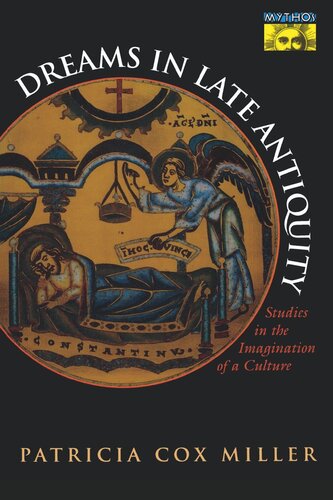

Most ebook files are in PDF format, so you can easily read them using various software such as Foxit Reader or directly on the Google Chrome browser.
Some ebook files are released by publishers in other formats such as .awz, .mobi, .epub, .fb2, etc. You may need to install specific software to read these formats on mobile/PC, such as Calibre.
Please read the tutorial at this link: https://ebookbell.com/faq
We offer FREE conversion to the popular formats you request; however, this may take some time. Therefore, right after payment, please email us, and we will try to provide the service as quickly as possible.
For some exceptional file formats or broken links (if any), please refrain from opening any disputes. Instead, email us first, and we will try to assist within a maximum of 6 hours.
EbookBell Team

4.3
48 reviewsDream interpretation was a prominent feature of the intellectual and imaginative world of late antiquity, for martyrs and magicians, philosophers and theologians, polytheists and monotheists alike. Finding it difficult to account for the prevalence of dream-divination, modern scholarship has often condemned it as a cultural weakness, a mass lapse into mere superstition. In this book, Patricia Cox Miller draws on pagan, Jewish, and Christian sources and modern semiotic theory to demonstrate the integral importance of dreams in late-antique thought and life. She argues that Graeco-Roman dream literature functioned as a language of signs that formed a personal and cultural pattern of imagination and gave tangible substance to ideas such as time, cosmic history, and the self.
Miller first discusses late-antique theories of dreaming, with emphasis on theological, philosophical, and hermeneutical methods of deciphering dreams as well as the practical uses of dreams, especially in magic and the cult of Asclepius. She then considers the cases of six Graeco-Roman dreamers: Hermas, Perpetua, Aelius Aristides, Jerome, Gregory of Nyssa, and Gregory of Nazianus. Her detailed readings illuminate the ways in which dreams provided solutions to ethical and religious problems, allowed for the reconfiguration of gender and identity, provided occasions for the articulation of ethical ideas, and altogether served as a means of making sense and order of the world.